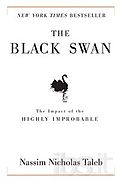It’s hardly a new observation that things which reveal simultaneously conceal. But the thought occurred to me twice recently, whilst listening to two social science professors. The statistics they are citing to reveal the condition of men and women is simultaneously concealing, I thought. And I wondered if they much think about that themselves as they stride the global stage seeding their ideas in think tanks and policy units.
The two are Robert Putnam and Martin Seligman. I recently mentioned reservations about Putnam. Seligman is the champion of positive psychology and he was in the UK this week sharing its wisdom. But was he sharing its blind spots too? On the evidence of his talk at the RSA, it would seem not much.
Take this factoid, offered during the questions, that struck me as odd. It turns out, he said, that the most hopeful people in America are fundamentalists who have confidence in an afterlife. That’s presumably an average across the population of fundamentalists, I thought, for it surely conceals the humanly significant, but statistically insignificant, number of individuals raised in fundamentalist families for whom the ideology generates despair. Gay folk come to mind. At perhaps 1 in 10 or 20, they won’t impact the happy headline.
Perhaps they’d reappear should the statistician turn their spotlight on suicides, say. But anyway, it’s the point about the ignorance of statistics that Nassim Nicholas Taleb makes so well in The Black Swan.
Then there are certain ticks that were strikingly common to both, phrases like ‘It turns out that…’. After hearing a handful, I concluded this is code for, ‘Statistical procedures produce certain results, but don’t worry yourself about the reliability of the statistical procedures in assessing the ways of men and women. You can trust me, I’m the scientist.’ Trust? I fear the phrase left me feeling the opposite.
Third, there were the times they were asked questions and cleverly diverted the answers to areas where they could cite some randomised controlled trial result. For example, Seligman was asked whether optimism is actually one of the problems we face, if you think of the optimism of the City that contributed to the crash of 2008? He changed the question to whether or not optimistic people care about human suffering and, unsurprising, had a study to hand which showed they do.
The science remains in tact. Keep your attention on the light, they were saying, and don’t concern yourself with the shadows.
I concluded that it’s not what public policy professors affirm that we should worry about. It’s what their statistical affirmations hide. For therein lies much insight, and possibly the insight that most matters, about the game called life.
